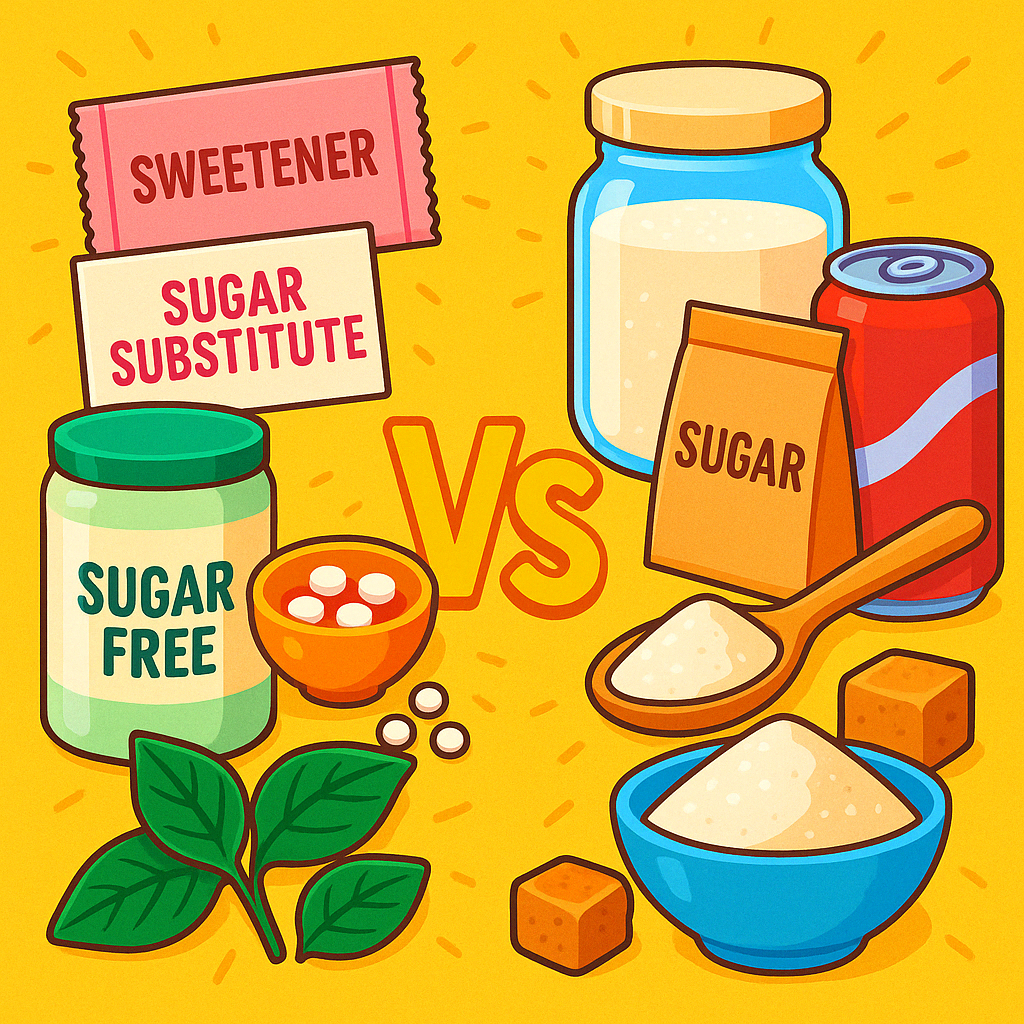Artificial Sweeteners, Sugar Substitutes, and Sugar Alcohols: What You Should Know
Nonnutritive sweeteners, sugar substitutes, and sugar alcohols are low- or zero-calorie ingredients added to foods and drinks to provide sweetness without the added calories of sugar. These ingredients can help individuals manage their weight and support blood sugar control—especially important for those with diabetes.
How Much Sugar Is Too Much?
The American Heart Association recommends no more than:
-
9 teaspoons (36 grams) of added sugar per day for men
-
6 teaspoons (25 grams) per day for women
Yet, the average U.S. adult consumes about 17 teaspoons of added sugar daily—that’s roughly 1/3 cup of sugar or the equivalent of two cans of soda. Over the course of a year, this adds up to about 60 pounds of added sugar—more than double the recommended amount.
Are Natural Sugars Better?
Many people believe that natural sugars like honey, maple syrup, coconut sugar, or dextrose are healthier than white sugar. While these may contain small amounts of minerals, they are still considered added sugars and can have the same negative health effects when consumed in excess—such as weight gain, blood sugar spikes, increased triglycerides, and a higher risk of heart disease.
Can Artificial Sweeteners Help?
Swapping sugar for nonnutritive sweeteners can reduce calorie intake and help manage cravings. However, research shows mixed results:
-
They may help reduce total calorie consumption, but some studies suggest they can stimulate appetite and increase cravings for sweet foods and beverages.
-
Long-term use may be linked to a higher risk of stroke, heart disease, and digestive issues such as gas, bloating, and diarrhea—possibly due to changes in the gut microbiome.
Use with Caution
Like most things, moderation is key. While artificial sweeteners can be useful tools, it’s important not to rely on them too heavily.
Here are some practical tips:
-
If you frequently use zero-calorie water flavorings, try infused water with fruits or herbs instead.
-
Choose whole snacks like fresh fruit, boiled eggs, vegetables, or nuts over sugar-free processed items.
-
Switch from sweetened creamers or sugar substitutes in coffee/tea to a splash of milk, or try going without altogether.
-
Swap zero-sugar yogurts for plain yogurt and add your own fruit for natural sweetness.
Bottom Line
Artificial sweeteners can be part of a healthy diet—when used in moderation. Focus on reducing added sugars overall and aim to eat more whole, minimally processed foods for long-term health benefits.
